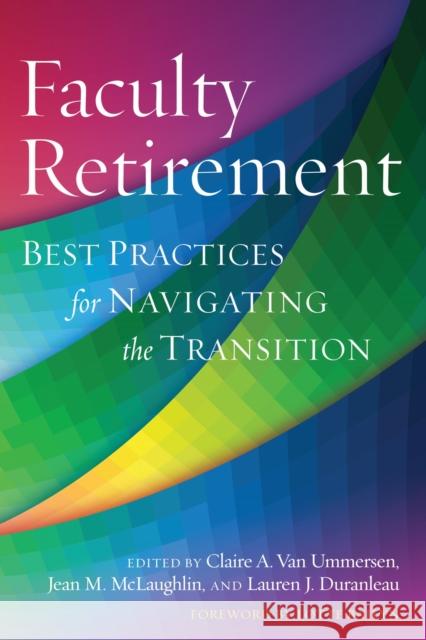Faculty Retirement: Best Practices for Navigating the Transition » książka
Faculty Retirement: Best Practices for Navigating the Transition
ISBN-13: 9781620361917 / Angielski / Twarda / 2014 / 280 str.
Faculty Retirement: Best Practices for Navigating the Transition
ISBN-13: 9781620361917 / Angielski / Twarda / 2014 / 280 str.
(netto: 674,98 VAT: 5%)
Najniższa cena z 30 dni: 654,86
ok. 22 dni roboczych.
Darmowa dostawa!
This book addresses the critical and looming issue of retirement in higher education as the cohort of boomer generation faculty come to the close of their careers. On the one hand institutions need to replenish themselves, and so need older employees to retire. On the other, mass retirements can decimate departments, creating the need for mass hirings that will create another crisis in the future.
At the same time, with the elimination of mandatory retirement, many faculty are working on into and beyond their seventies because they feel they still have much to contribute, because their identities are closely tied to their work, because they wish to remain connected to their institutions, or for financial reasons.
Given institutions' legal constraints and planning exigencies, and faculties' varied motivations, what are the options that can satisfy the needs of both parties? This book presents a range of examples of how institutions of all types and sizes are addressing these dilemmas, and how faculty members have helped create or shape policies that address their needs and allow them to continue to play meaningful roles at their institutions.
The contributors describe practices that address the concerns of those already nearing or in retirement, propose approaches to creating opportunities to start these sensitive discussions and address financial planning at early career stages, and outline strategies for developing clear structures and policies and communication so that individuals have a full understanding of their options as they make life-changing decisions.
This book presents models from fifteen colleges and universities identified by the American Council on Education through a competition for having developed innovative and effective ways to help faculty transition into retirement. It offers clear messages about the need for greater transparency in addressing retirement and transitions, for better communication, and for close coordination between human resources and academic administrators. It offers a roadmap for HR personnel, senior administrators, department chairs, and faculty themselves.











